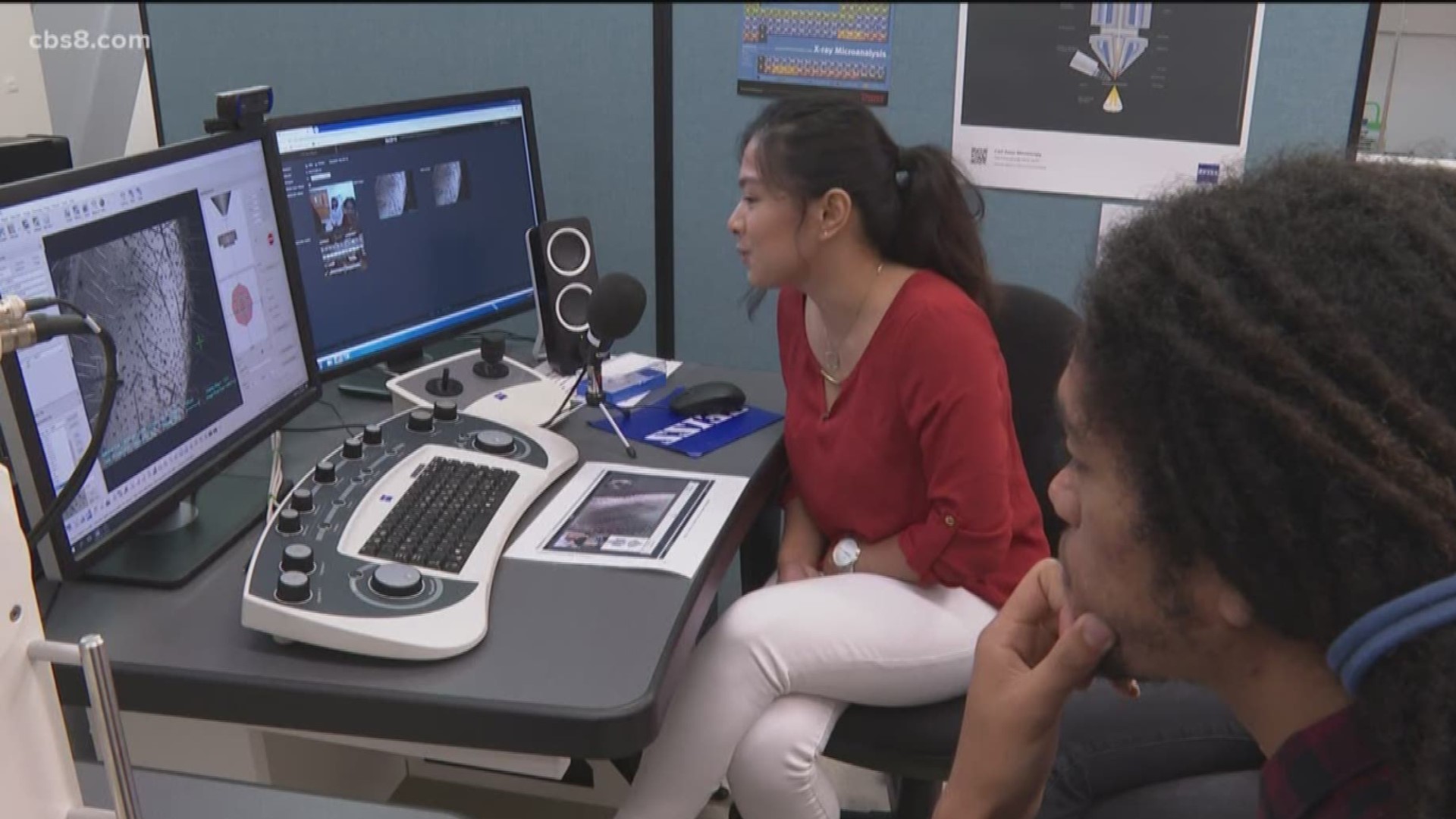SAN DIEGO — Scientists say the promise of new medicine deliveries to attack cancer cells and the future of artificial intelligence may lie in nanotechnology. Nanotechnology is defined as the study of specimens at the nano scale, a scale that is smaller than the human eye can detect.
Through the invisible beam of a scanning electron microscope in the Nano 3 Laboratory at UC San Diego’s Qualcomm Institute, students can take a scientific journey exploring the tiniest of structures.
At 60,000 times the magnification of the average classroom microscope, the nano tech microscopes offer students access into the field of nanotechnology where scientists engineer structures at the nano scale. Biology teacher, Lesli Horowitz, says, “the lab at UC San Diego allows the students access to technologies they would otherwise never have access to.”
Director of Education outreach, Yves Theriault says, “your life is never the same after seeing nanoscale.”
Through remote access powered by UC San Diego’s undergraduate researchers, the students analyzed the structures of pollen, shark scales and a gecko foot. One Kearny High student said, “The shark scales were interesting to me to be able to see like they were curved that helped them move faster.”
Yu-Hwa-Lo, Director of SD Nanotechnology Infrastructure, said they like students to know that nanotechnology is not something that is remote, it is part of their everyday life.
The technology is a part of everything from developing new medicines and products to engineering filtration systems. Nanotechnology is a critical component of scientific and technological advancements.
The university’s mission is to immerse nanotechnology into kindergarten through 12th-grade classrooms and implement state-wide science standards. Yves Theriault says that nanotechnology is not in schools right now and the National Science Foundation is concerned that kids are missing the boat by having to wait until college to be introduced to it.
To date, the institute has mentored nearly 4,000 students county-wide.
To learn more about this Innovate 8 program, click here.

